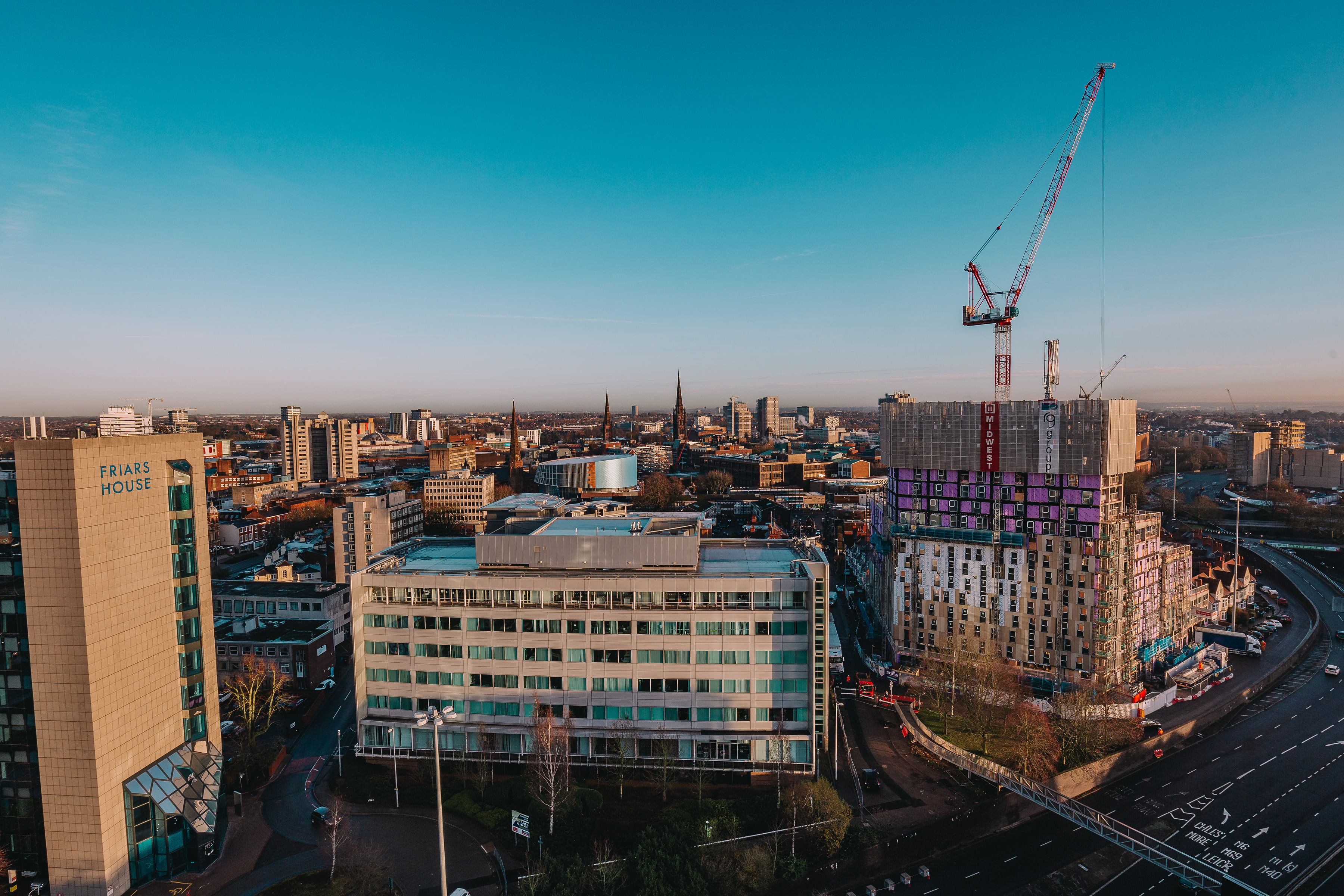The UK economy has been hit hard by the COVID-19 outbreak, shrinking by 2% in the first quarter of 2020, according to the ONS. Alongside this, the outbreak has created a swift change in daily life for people and businesses across the world, not least for the UK property sector.
Chaired by Rob Valentine, Director of Birmingham at Bruntwood, a panel of property experts from the region and overseas joined the roundtable. They discussed the West Midlands’ economic recovery and the underlying opportunities it may bring for future investment.
The overview from policymakers
Neil Rami, Chief Executive of West Midlands Growth Company, opened the roundtable by overviewing the projected impact on the region’s economy and the steps being taken by policymakers to reduce this. Commenting on the region’s recovery, he said:
“Many forecasters are suggesting the West Midlands could be one of the regions to bounce back more quickly because of the fundamentals of our economy, particularly the infrastructure investments already committed to the region.”
Neil informed the audience about the West Midlands’ COVID-19 Economic Impact Group, a cohort of public sector bodies that have come together to mitigate the impact of coronavirus on the region’s economy.
The Group has developed a ten-point economic recovery plan with three main points for the property sector to focus on:
• National policy changes that will stimulate the West Midlands economy, ranging from capital allowances to planning
• Regional freedoms and flexibilities on planned infrastructure projects
• A fiscal stimulus to support the UK regions, such as prioritising major infrastructure projects and programmes
The property industry’s civic role
The panel discussion started by setting the scene on the property sector’s civic role, and duty to its community. Rachel Dickie, Head of Urban Regeneration at Legal & General, commented on some of the steps her firm is taking to fulfil its civic role as a landowner:
“As a commercial property owner we are working with tenants to help form flexible and realistic plans for them to be able to survive. It’s going to be easier for some than others – but the intention is that we protect local jobs and also ensure the cashflows that ultimately pay peoples’ pensions.”
Urban planning
The pandemic has raised many questions around urban planning, with some experts predicting more remote working and an emphasis on the separating out of populations.
Ian Cornock, Lead Director – Midlands Region at JLL, stressed that the property industry will change. A number of trends, which were already taking place, have also been accelerated. He said:
“(The pandemic) will not stop the long-term trend toward urbanisation, but what I think we will see is a big rethink in urban design. There is going to be an increased need to develop scalable, smart-city solutions and a much greater focus on public health and safety.
“I think there will be much greater investment into public infrastructure, such as public open spaces; health and wellbeing; sustainability; and amenities will come to the fore.”
Prospects for the hotel sector
The panel discussed how the hospitality and hotel sector has been hardest hit by the pandemic. However, countries that are further along in the pandemic, such as China, are seeing a swift bounce-back driven by domestic travel.
Roddy Allan, Chief Research Officer, Asia Pacific at JLL, joined the panel from China:
“What we have seen is people from Shanghai, for example, have been travelling one to two hours from the city to take a break. A lot of the hotels within that radius are generally now reaching revenues of around 30% of what they had been before, bouncing back quite rapidly.
“We’re essentially seeing pricing about 70-80% back to where it was prior to the COVID crisis.”
Future investment prospects
Although the West Midlands is one of the regions hardest hit by the pandemic, it also has many infrastructure investments in the pipeline that will help its economy to recover. Tom Edgcumbe, Managing Director (UKCS North and Midlands) at Balfour Beatty, commented:
“The HS2 sign-off has been really critical for Birmingham and the surrounding region and that will give a level of confidence as we start to come out of COVID.
“There’s a lot of major schemes with the Commonwealth Games, the Queen Elizabeth hospital here, that haven’t been affected and will continue to be delivered throughout the COVID period.”
Changes to policy
The panellists concluded by discussing the potential policies they would like to see put in place to help the region recover. An overarching theme from the session was a need for the industry not to lose touch of the quality of its work, especially in a private-public partnership. Rob Groves, Regional Director of Argent, said:
“Public-private partnerships are key, however in the procurement stage it is about quality of partner not price.”
Adrian Bland, Partner at Shakespeare Martineau, summarised the session:
“If there is one thread that seems to come through most of the responses on the different topics, it is around the chance to do something better. The word that comes through is quality – the quality of response, design and the quality of the environment.”
Get involved
The West Midlands Growth Company will be hosting a number of virtual events in the coming weeks. To stay updated on the latest events, please check our channels or contact jessica.muprhy@wmgrowth.com
